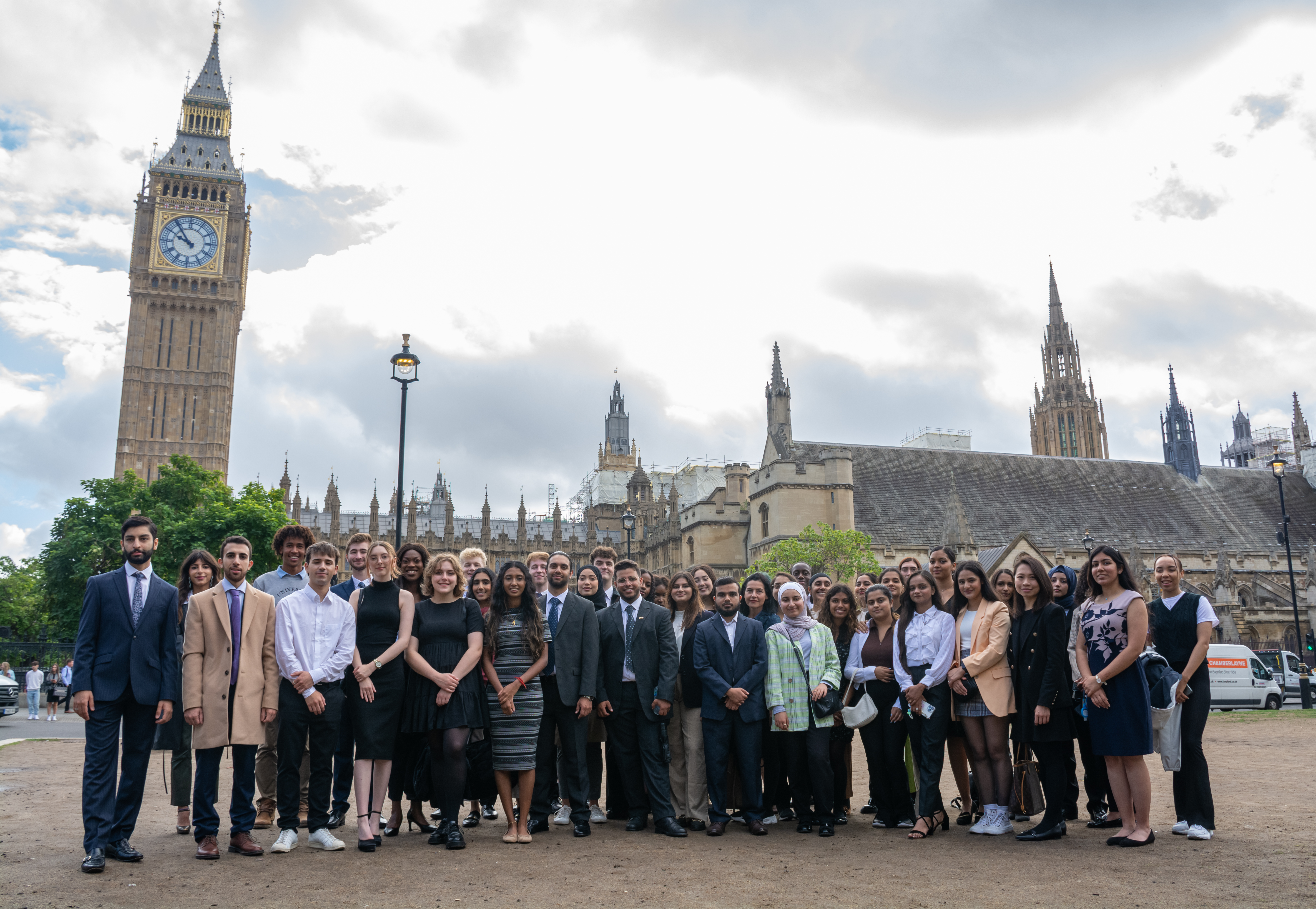
Menu
Menu

17 / 06 / 20
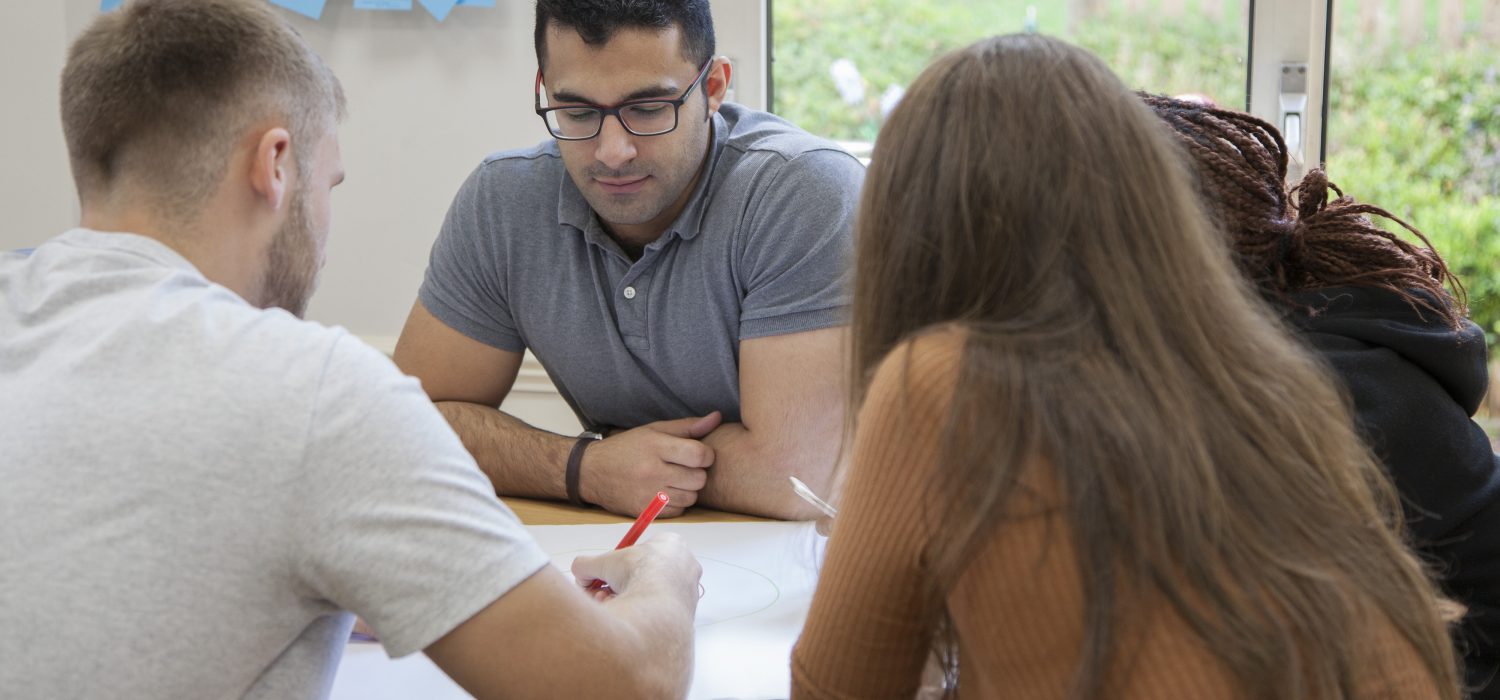
We spoke to an entrepreneurial Parliamentors group from the University of Salford, who created a thought-provoking documentary called ‘Don’t Hate What You Don’t Understand’. We caught up with them to discover the projects journey, experiences learnt through the programme.
Every academic year we have a cohort of 50 student leaders from 10 UK universities who join our Parliamentors programme. From September to June, the successful ParliaMentors applicants are put into groups of 5 at their university to create a social action project in or around their university town. They are assigned to an MP to guide them in the world of Westminster and constituency politics and mentor them as they continue their leadership journeys making a difference in politics, activism and business.
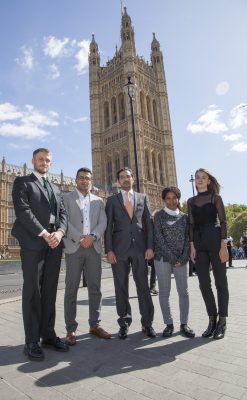 We are a group of students from the University of Salford who are part of the 2019-2020 ParliaMentors Programme. The group consists of Ben Grogan – studying Social Policy, Abdul Shikhmous – studying Journalism, Laura Roper – studying Conservation, and Whitney Ezeoke and Esmail Momeni – both studying Law.
We are a group of students from the University of Salford who are part of the 2019-2020 ParliaMentors Programme. The group consists of Ben Grogan – studying Social Policy, Abdul Shikhmous – studying Journalism, Laura Roper – studying Conservation, and Whitney Ezeoke and Esmail Momeni – both studying Law.
We decided to focus on hate crime due to the worrying increase in the occurrence of hate crimes since the Brexit referendum and the accompanied mainstream acceptance of harmful right-wing ideas. As well as the national increase there have also been examples in the Salford area with targeted racist graffiti and even the murder of Salford student Will Lound in 2016. We felt that a video could provide a platform for residents to share their ideas and experiences on a topic that is not often spoken about. You can view this documentary via Facebook here >>
The training provided by ParliaMentors gave us the framework in which to explore the topic of hate crime and the confidence to communicate these ideas in a sensitive manner. The programme leaders helped us shape the documentary and plan out the many steps required to carry out the process effectively.
As part of our project we intended to run a community event which had to be cancelled due to the covid-19 pandemic. This experience taught us the importance of flexibility and teamwork which helped us to readjust our project mid-year. As a group we all have different skills, so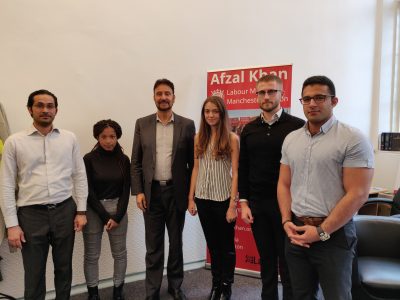 it was important that we worked together to utilise these and produce the best project that we could. We learnt from each other throughout the year as well as learning valuable community project planning skills that were required to carry out our plan.
it was important that we worked together to utilise these and produce the best project that we could. We learnt from each other throughout the year as well as learning valuable community project planning skills that were required to carry out our plan.
The most surprising part of filming the video project was the variety of responses received from the participants. We didn’t expect such a lively discussion on a topic that is often difficult to talk about, but all the participants did a really good job of giving honest and open answers – the discussion on who’s responsible to solve the hate crime issue was particularly interesting.
The most fun part of the process was seeing our project begin with a simple idea through to a finished video. We went through the entire process together and had difficulties with each step, so to see the project develop and finish with a concrete outcome was rewarding. It was enjoyable to see the people participating in the video share their ideas and give them a platform to communicate to a wider audience.
If you want to learn more about the effects of hate crime then Amnesty International recently published a report which can be found here >>
If you want something more academic, then the Centre for Hate Studies at Leicester University publish up to date research on their website >>
And most importantly, if you have been a victim of or witness to a hate crime then they can be reported directly to the police using this online platform >>
If you need any assistance, we would recommend speaking to the Citizens Advice Bureau who can offer emotional support as well as guidance on dealing with the police.
You can view this documentary via Facebook here >>

07 / 12 / 21
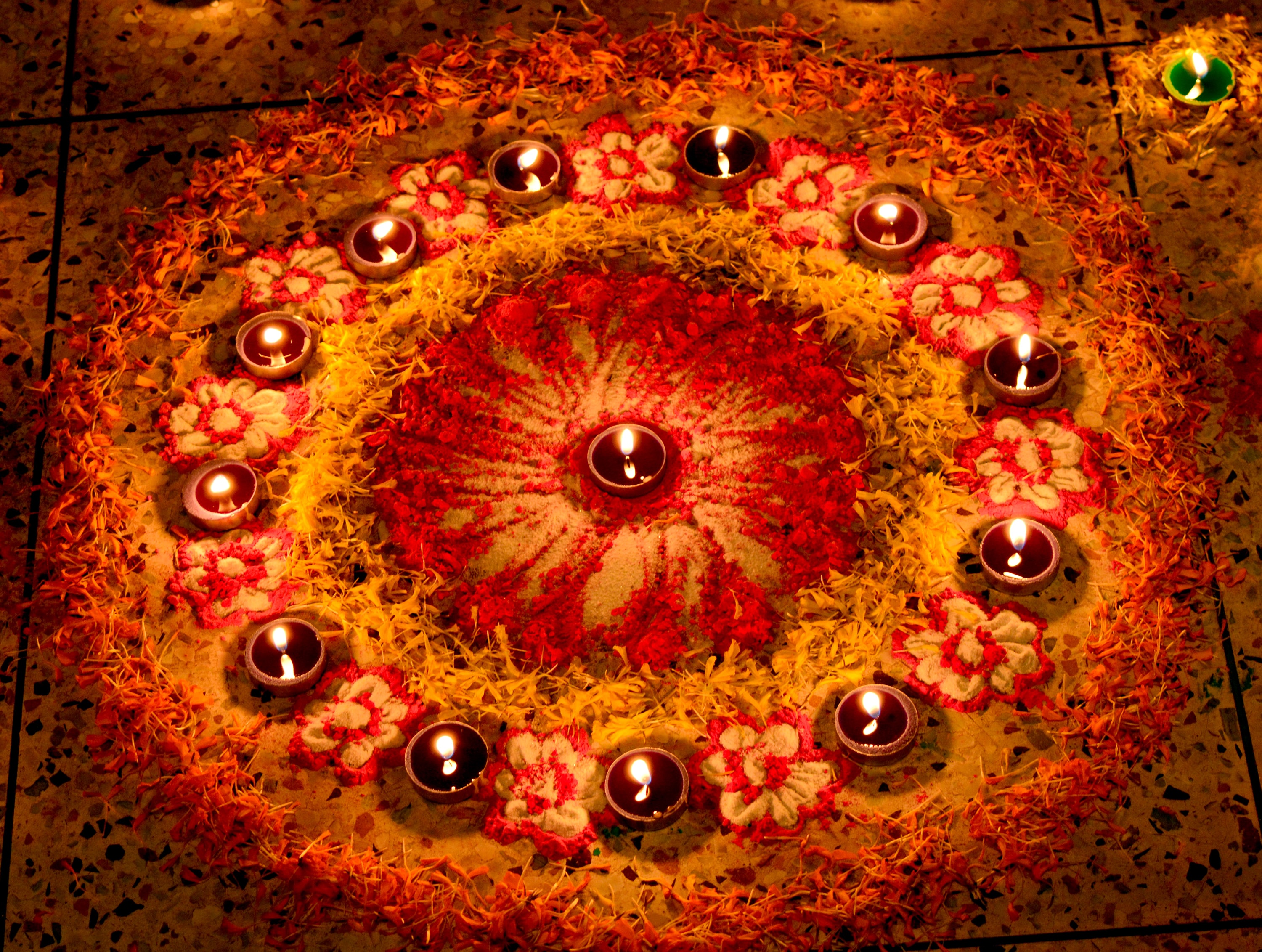
04 / 11 / 21